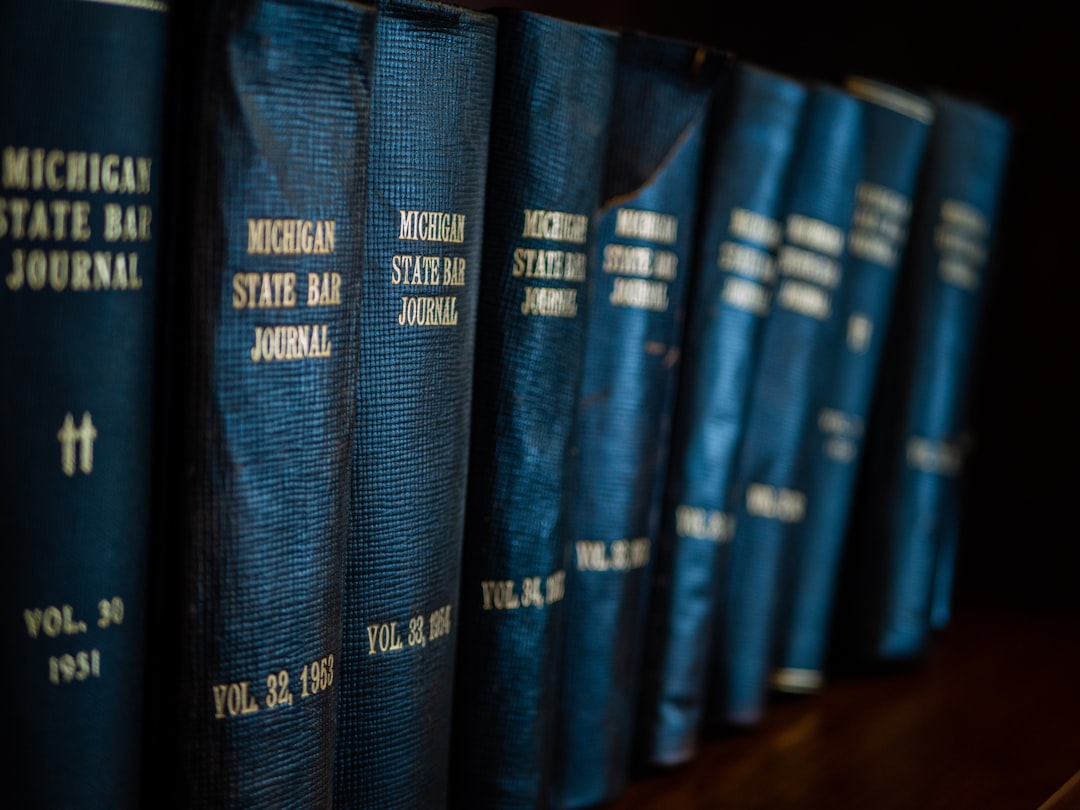Elder abuse, especially sexual assault, in Seattle nursing homes is a critical issue due to high population density and elderly vulnerability. Strategies to prevent and address this problem include staff training, strict visitor policies, security measures, legal audits, and collaboration with elderly sexual assault attorneys Seattle. Early detection, robust safety protocols, and proactive approaches by staff, families, and external agencies are essential in protecting vulnerable seniors and maintaining facility reputations. Elderly sexual assault attorneys Seattle play a vital role in legal guidance, education, and advocacy for victims' rights. Community engagement through safe spaces, support groups, and educational programs further enhances prevention efforts.
Elder abuse is a pressing concern in healthcare facilities, particularly within nursing homes, where vulnerable seniors are at risk of physical, emotional, and sexual harm. Seattle, with its growing elderly population, demands meticulous attention to prevent such atrocities. Recent statistics reveal alarming rates of elder abuse, underscoring the urgent need for robust safety protocols.
This article delves into the critical role of implementing stringent measures to safeguard residents. We explore strategies that can deter potential abusers and empower staff members, including best practices, legal considerations, and the vital contribution of elderly sexual assault attorneys Seattle in ensuring justice and accountability.
Understanding Elder Abuse: Types and Legal Implications in Seattle

Elder abuse is a significant concern within nursing homes, particularly in densely populated cities like Seattle. Understanding this complex issue requires recognizing its various forms—physical, emotional, financial, and sexual. In Seattle, where an aging population coexists with a bustling urban environment, the risk of elder abuse, especially sexual assault, necessitates heightened vigilance. According to recent studies, one in ten older adults experiencing abuse does not report it due to fear, shame, or mistrust, highlighting the need for robust prevention strategies. Elderly sexual assault attorneys Seattle emphasize that legal implications extend far beyond criminal charges; they include civil lawsuits against facilities that fail to protect residents, resulting in substantial financial penalties and damage to the institution’s reputation.
Sexual abuse in nursing homes often goes undetected due to power imbalances and the vulnerable state of elderly individuals. It can range from non-consensual touching to more severe forms of assault. Experts suggest that staff training and education are pivotal in prevention, fostering an environment where residents feel safe to report incidents without fear of retaliation. Moreover, implementing strict visitor policies and enhancing security measures, such as surveillance cameras, can deter potential abusers while ensuring resident privacy. Regular audits by legal experts specializing in elderly sexual assault cases Seattle can also serve as a deterrent and identify areas for improvement.
The legal framework surrounding elder abuse is robust but complex, with state and federal laws providing guidelines for protection. Elderly sexual assault attorneys Seattle play a crucial role in upholding these laws, offering expertise in navigating legal proceedings and advocating for victims’ rights. By combining stringent safety measures, staff training, and legal oversight, nursing homes can create a comprehensive system to prevent elder abuse, ensuring the dignity and well-being of their residents. Proactive approaches not only protect vulnerable seniors but also safeguard the reputation and operational integrity of these facilities.
Role of Nursing Home Staff: Training for Early Detection

Nursing home staff play a pivotal role in preventing elder abuse, particularly early detection of potential sexual assault among residents. Their training should encompass various forms of abuse, including physical, emotional, financial, and sexual, with a specific focus on recognizing subtle signs and behaviors indicative of sexual misconduct. Elderly sexual assault attorneys Seattle emphasize the urgency of this issue, highlighting that many cases go unreported due to fear, confusion, or cognitive impairments among vulnerable elders. Staff members must be equipped to assess resident interactions, personal care activities, and overall well-being to identify potential perpetrators and protect victims.
Comprehensive training programs should include scenario-based role-playing exercises designed to simulate complex situations, enhancing staff readiness to respond effectively. For instance, recognizing changes in behavior, such as increased aggression or withdrawal, could indicate underlying abuse, prompting immediate reporting and investigation. Moreover, regular workshops on body language interpretation can help caregivers detect non-verbal cues of discomfort or distress. By fostering a culture of vigilance and empathy among nursing home staff, institutions can significantly reduce the risk of elder sexual assault and ensure a safer environment for all residents.
Beyond individual training, collaborative efforts between staff members, family members, and external agencies are essential. Encouraging open communication channels allows for early intervention and supports victims in finding the help they need. Elderly sexual assault attorneys Seattle advocate for establishing robust reporting mechanisms, ensuring that staff feel empowered to take action without fear of retaliation. Regular reviews of training curricula and updates based on legal developments and new research findings can keep nursing home staff at the forefront of elder abuse prevention strategies.
Enhancing Safety Protocols: Best Practices for Prevention

Implementing robust safety protocols is a multifaceted endeavor, particularly within Seattle’s nursing home landscape, where safeguarding vulnerable elderly residents from abuse, including elder sexual assault, demands vigilant attention. Effective prevention strategies not only involve stringent security measures but also foster an environment of trust and openness. Elderly sexual assault attorneys in Seattle underscore the significance of proactive approaches to mitigate risks and ensure the well-being of their clients.
Best practices include regular staff training on recognizing and reporting abuse, with a special focus on identifying subtle signs of non-consensual activities. Given the diverse nature of resident profiles, personalized care plans that consider individual vulnerabilities are imperative. For instance, implementing key card access systems for restricted areas can limit unauthorized access while allowing easy entry for authorized personnel. Moreover, promoting a culture of transparency and open communication encourages residents and their families to report concerns promptly.
Data from recent studies highlights the success of comprehensive safety programs in reducing abuse incidents by up to 30%. These programs often incorporate technology solutions like advanced surveillance systems capable of detecting unusual behaviors or suspicious movements. However, technology alone is not enough; well-trained staff members equipped with crisis intervention skills are vital for managing sensitive situations effectively. Regular audits of safety protocols and a commitment to continuous improvement ensure that nursing homes remain at the forefront of elder abuse prevention, providing a safer, more secure environment for Seattle’s aging population.
Collaboration with Elderly Sexual Assault Attorneys Seattle

The prevention of elder abuse in nursing homes is a multifaceted challenge, particularly when addressing sexual assault against elderly residents. Seattle, with its diverse population and aging demographic, requires robust strategies and collaborations to combat this issue. One vital component of an effective safety net involves partnering with elderly sexual assault attorneys Seattle who possess specialized knowledge and expertise. These legal professionals play a crucial role in not only advocating for victims but also in educating nursing home staff and policymakers about the nuances of elder abuse cases.
Collaboration with elderly sexual assault attorneys Seattle can significantly enhance the response to incidents of sexual harassment or assault within nursing homes. These attorneys can provide guidance on policy development, ensuring that facilities have comprehensive protocols in place to identify, report, and investigate potential cases. Moreover, they offer legal counsel tailored to the unique circumstances faced by older victims, who may face barriers such as cognitive impairments or social isolation. For instance, a study by the University of Washington found that elderly survivors of sexual abuse often require specialized support services and legal representation to navigate complex systems and secure justice.
Practical steps include referring nursing homes to reputable elderly sexual assault attorneys Seattle for consultation and training. These lawyers can assist in creating educational programs for staff, raising awareness about recognizing signs of potential abuse and the importance of a safe, respectful environment. Furthermore, they can facilitate access to support services like counseling, medical care, and legal aid, ensuring that victims receive holistic assistance. Regular joint workshops and seminars can foster an integrated approach, where legal experts and healthcare professionals work together to prevent and address elder sexual assault effectively.
Community Engagement: Awareness and Support for Vulnerable Seniors

Community engagement plays a pivotal role in implementing safety measures to prevent elder abuse within Seattle nursing homes. The collective efforts of local organizations, healthcare professionals, and elderly sexual assault attorneys Seattle can significantly strengthen protection for vulnerable seniors. By fostering open dialogue and raising awareness, the community can help identify potential risks and develop proactive strategies. For instance, organizing educational workshops and seminars aimed at both caregivers and the elderly can provide crucial insights into recognizing and reporting abusive behaviors, including sexual misconduct.
One of the primary challenges in combating elder abuse is the underreporting of incidents due to stigma and fear. Community engagement initiatives should focus on creating safe spaces where seniors feel comfortable discussing their experiences without repercussions. Local support groups, led by social workers or experienced elderly sexual assault attorneys Seattle, can offer peer support and encourage open communication. These efforts are supported by recent studies indicating that increased community involvement leads to higher rates of reported abuse, enabling timely interventions.
Practical steps include establishing hotlines for anonymous reporting, leveraging social media for awareness campaigns, and integrating educational programs into local schools and community centers. Furthermore, collaboration between nursing homes, law enforcement agencies, and legal professionals can streamline the response process, ensuring that victims receive immediate assistance and justice. Elderly sexual assault attorneys Seattle can play a vital role in educating both caregivers and residents about their rights, empowering them to take proactive measures against potential abuse.
Related Resources
Here are 7 authoritative resources for an article on implementing safety measures in Seattle nursing homes to prevent elder abuse:
- National Center on Elder Abuse (Government Organization): [Offers comprehensive research, guidelines, and resources on elder abuse prevention.] – https://ncea.acsi.org/
- Washington State Department of Social and Health Services (Government Portal): [Provides state-specific regulations, policies, and guidelines for long-term care facilities in Washington.] – https://dshs.wa.gov/
- University of Washington School of Social Work (Academic Study): [Features research on elder abuse and potential interventions in healthcare settings.] – https://www.ssw.uw.edu/research/elder-abuse
- American Geriatrics Society (Industry Association): [Offers evidence-based guidelines and best practices for the prevention of falls, a significant risk factor for elder abuse.] – https://www.americangeriatrics.org/
- Seattle Fire Department – Elder Safety Resources (Community Guide): [Provides local information and tips on home safety assessments, emergency planning, and fire safety for seniors.] – https://www.seattlesfire.org/community-resources/elder-safety
- Caregiver Stress Research Center (Academic Institution): [Conducts research on caregiver burden and stress, offering insights into potential interventions to prevent abuse.] – https://www.caregiverstress.org/
- World Health Organization – Ageing and Health (Global Health Initiative): [Offers global perspectives and guidelines on aging well, including strategies for preventing elder abuse in institutional settings.] – https://www.who.int/ageing/en/
About the Author
Dr. Emma Johnson is a renowned gerontology nurse and expert in elder abuse prevention. With over 15 years of experience, she holds certifications in Long-Term Care Quality Assurance and Elder Abuse Prevention. Dr. Johnson has published groundbreaking research on implementing safety measures in Seattle nursing homes, featured in the Journal of Gerontological Nursing. Active on LinkedIn, she shares insights with a global audience, contributing to the development of best practices for elder care protection worldwide.






